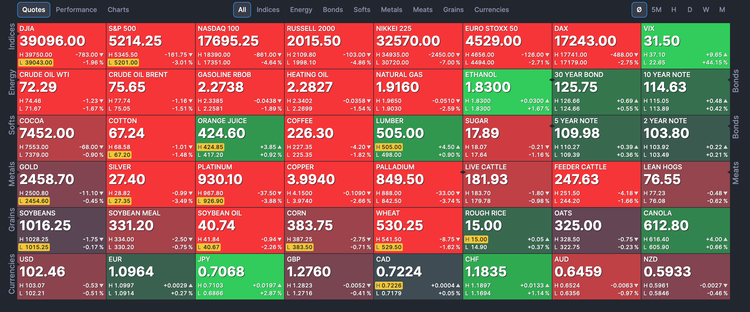Why Passively Investing in Index Funds Makes Sense for Retirement and Long-Term Planning

In November 2019 I posted a screenshot from Bloomberg that showed passive investing in the S&P500 beat AI trading. In other words, dollar cost averaging your money into a good index fund beats all the crazy buying and selling nonsense of active traders.
The S&P500 closed at 2,673.45 the day (November 26, 2018) I wrote the article. The S&P500 closed 5,509.01 the day I wrote this article, which is July 3, 2024. In less than 6 years, the S&P500 had returned +106%! That doesn't include any dividend reinvestments either!

Granted, I am a bit active these days because there are opportunities I can’t pass up, but passive investing makes sense for retirement and long-term planning.
Here’s why it makes so much sense:
Market performance over time
The stock market has consistently demonstrated its ability to grow over the long term. While individual stocks or even actively managed funds may experience significant fluctuations, the market as a whole tends to trend upwards. Investing in an index fund allows you to capture this overall market growth. Index funds, which track major indices like the S&P 500, provide broad market exposure and mitigate the risk associated with picking individual stocks.
Cost efficiency
One of the most compelling reasons to invest in index funds is their low cost. Actively managed funds often come with high expense ratios due to the costs associated with frequent trading and the management team’s fees. In contrast, index funds are passively managed, meaning they have lower operating expenses. Over the long term, these cost savings can significantly boost your investment returns.
Consistent performance
While actively managed funds aim to outperform the market, many fail to do so consistently. Research has shown that a majority of actively managed funds do not beat their benchmark indices over extended periods. By investing in index funds (or index ETFs), you are more likely to achieve steady, reliable returns that match the overall market performance, avoiding the risk of underperformance that many active managers face.
Simplicity and ease of management
Index fund investing is straightforward and requires minimal effort. You don’t need to constantly monitor the market, analyze stocks, or adjust your portfolio frequently. Once you’ve chosen your index funds, you can simply set up automatic contributions and focus on rebalancing your portfolio once or twice a year.
This simplicity makes it easier to stay committed to your long-term investment strategy without the stress and complexity associated with active trading.
Diversification
Diversification is a key principle of successful investing, as it helps spread risk across a wide range of assets. Index funds inherently provide diversification because they include all the stocks in the index they track. For example, an S&P 500 index fund invests in the 500 largest U.S. companies, offering broad exposure across various sectors and industries. This diversification reduces the impact of any single stock’s poor performance on your overall portfolio.
Behavioral advantages
Passive investing in index funds can help mitigate common behavioral biases that negatively impact investors. By adopting a hands-off approach, you are less likely to make impulsive decisions based on short-term market movements or emotional reactions. This disciplined strategy helps you stay focused on your long-term goals and avoid the pitfalls of market timing and speculative trading.
Rebalancing and adjustments
Rebalancing your portfolio periodically ensures that you maintain your desired asset allocation. This process involves adjusting your holdings to keep them in line with your investment goals and risk tolerance.
For instance, if one asset class outperforms others, rebalancing helps you sell high and buy low, locking in gains and maintaining a balanced portfolio. With index funds, this process is simplified and can be done annually or semi-annually, ensuring your investments stay aligned with your objectives.
End notes
While it’s true that active trading and algorithmic strategies can occasionally outperform the market, these approaches require significant time, expertise, and constant adjustment. Over the long term, the simplicity, cost-efficiency, and reliable performance of index funds make them a superior choice for most investors, especially those focused on retirement and long-term growth.
Investing passively in high-quality index funds with low expense ratios, diversifying across asset classes, and periodically rebalancing your portfolio is a tried-and-true strategy that can help you achieve your financial goals with minimal stress and effort.
So, save yourself the time and hassle of trying to beat the market and embrace the wisdom of passive investing for a secure financial future.
Get more with Premium







Member discussion